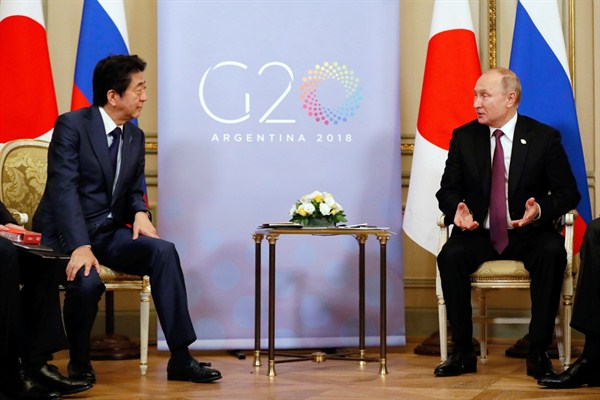In December 2016, Russian President Vladimir Putin visited Japan and got a lavish welcome. Prime Minister Shinzo Abe received Putin at a hot springs resort in his ancestral hometown of Nagato, in southwestern Yamaguchi prefecture. He referred to Putin by his first name in public appearances, a rare personal touch in the formal world of Japanese diplomacy. During the run-up to the visit, Japanese officials even reached out to the Kremlin with an offer for a dog, a prized Akita breed, intended as a male companion to Yume, the female Akita that was sent to Putin as a Japanese gift in 2012.
The trip received wall-to-wall press coverage in Japan; it was enough to make anyone forget that the two countries are still technically at war, having never signed a peace treaty following the end of World War II. But Abe’s charm offensive yielded lackluster results for the Japanese government. Putin turned down the dog, arrived in Yamaguchi more than two and a half hours late, and returned to Moscow having made no progress in resolving a decades-long territorial dispute that has strained Russian-Japanese relations.
Abe did not let that setback stop him from cultivating a close personal relationship with Putin, logging a total of eight bilateral meetings over the past two years. That effort may finally bear fruit in 2019. At their most recent face-to-face, at the Group of 20 summit in Buenos Aires on Dec. 1, they announced plans for a new negotiating framework to end a long-running feud over a group of islands off Japan’s northern coast, with Foreign Minister Taro Kono and his Russian counterpart, Sergei Lavrov, taking charge of the talks. Japanese reporters were quick to note that the famously tardy Russian president arrived for the meeting in Buenos Aires right on time.

